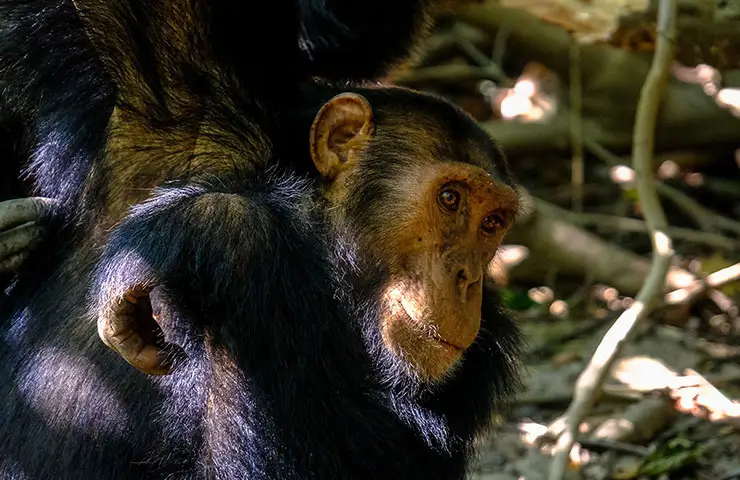How much does Rwanda chimpanzee trekking permits cost; Rwanda is often referred to as the “Land of a Thousand Hills,” is not only renowned for its breathtaking landscapes and diverse wildlife but also for its commitment to conservation efforts. One of the most sought-after wildlife experiences in Rwanda is chimpanzee trekking. The following will delve into the details of how much a chimpanzee trekking permit costs in Rwanda, shedding light on the significance of this expenditure in supporting conservation efforts and promoting sustainable tourism.
Chimpanzee trekking is a thrilling adventure that allows tourists to observe these intelligent primates in their natural habitat. Rwanda is home to the Eastern Chimpanzee subspecies, which can be found in the Nyungwe Forest National Park. The Nyungwe Forest is a lush, pristine rainforest that provides a perfect environment for chimpanzees to thrive.
Chimpanzee trekking permits in Rwanda are approximately $25 for Rwandan and Eastern Community citizens, 75 USD for Rwandan residents, and 150 USD for international tourists. However, it is essential to note that permit prices may vary over time due to inflation, changes in government policies, or fluctuations in demand.
The cost of a chimpanzee trekking permit plays a crucial role in the conservation of these magnificent creatures and their habitat. Here are some reasons why the permit cost is justified:
Conservation Funding: A significant portion of the permit fee goes towards funding conservation efforts in Rwanda’s national parks. This includes anti-poaching patrols, habitat restoration, and research on chimpanzee behavior and genetics. These initiatives are essential for the long-term survival of chimpanzees in the wild.
Sustainable Tourism: By charging a permit fee, Rwanda can regulate the number of visitors to the chimpanzee trekking sites. This helps minimize the impact of tourism on the chimpanzees and their environment, ensuring that the experience remains sustainable for future generations.
Community Benefits: Permit fees also contribute to the development of local communities living near chimpanzee habitats. This helps foster positive relationships between conservation efforts and local residents, as they see direct benefits from tourism revenue in the form of infrastructure development, education, and healthcare.
Research and Monitoring: The revenue generated from permit fees allows for ongoing research and monitoring of chimpanzee populations. This research provides valuable insights into their behavior, health, and population dynamics, which inform conservation strategies.
In conclusion, chimpanzee trekking in Rwanda offers a unique opportunity to connect with nature and witness the beauty of these intelligent primates. While the permit cost may seem steep at first glance, it plays a vital role in conserving chimpanzees and their habitat, promoting sustainable tourism, and supporting local communities. By paying for a chimpanzee trekking permit, visitors not only have a memorable experience but also contribute to the preservation of Rwanda’s rich biodiversity. Therefore, it is a small price to pay for the privilege of sharing the forest with these remarkable creatures and helping secure their future for generations to come.

